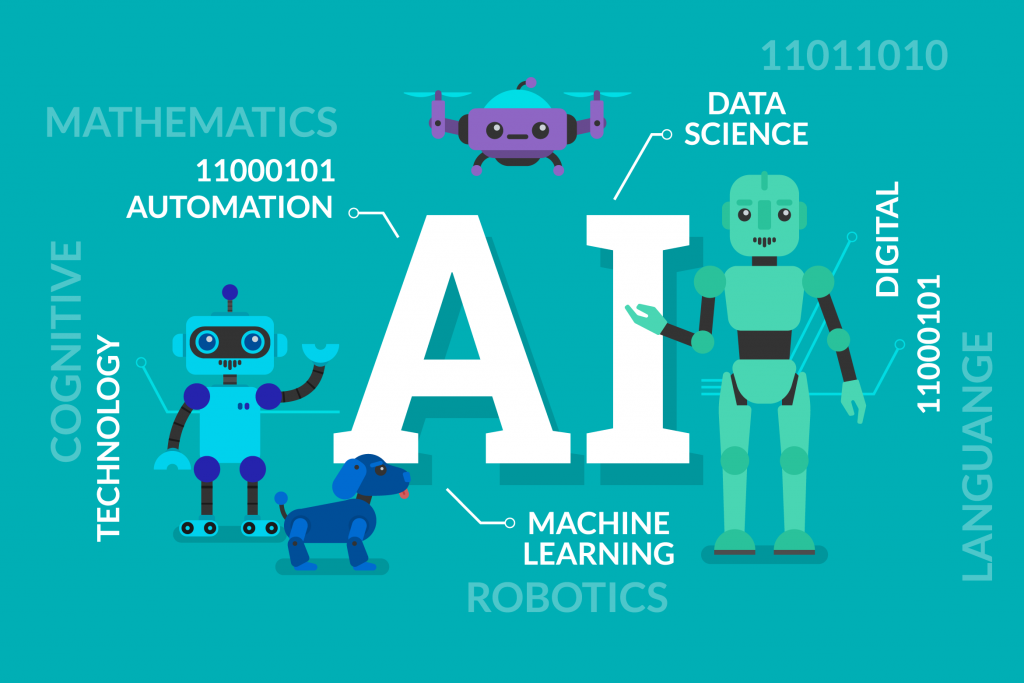- Introduction
- Importance of AI in today’s world
- Growing demand for AI specialists
- Understanding Artificial Intelligence
- Definition of AI
- Brief history of AI
- Skills Required to Become an AI Specialist
- Technical skills
- Programming languages
- Mathematics and statistics
- Machine learning
- Deep learning
- Soft skills
- Problem-solving
- Communication
- Critical thinking
- Technical skills
- Educational Pathways
- Bachelor’s degree
- Computer Science
- Data Science
- Master’s degree
- Specializations in AI
- PhD programs
- Research opportunities
- Bachelor’s degree
- Online Courses and Certifications
- Coursera
- edX
- Udacity
- Google AI
- Practical Experience
- Internships
- Personal projects
- Open-source contributions
- Building a Portfolio
- Showcasing projects
- Importance of GitHub
- Writing blogs and articles
- Networking and Community Involvement
- Attending conferences
- Joining AI communities
- Online forums and social media
- Staying Updated with Industry Trends
- Following AI research
- Reading relevant journals
- Subscribing to newsletters
- Career Opportunities
- Job roles in AI
- Data Scientist
- Machine Learning Engineer
- AI Research Scientist
- Industries hiring AI specialists
- Tech companies
- Healthcare
- Finance
- Automotive
- Job roles in AI
- Job Application Tips
- Crafting a compelling resume
- Acing the interview
- Negotiating job offers
- Continuous Learning and Development
- Lifelong learning in AI
- Pursuing advanced certifications
- Engaging in research
- Challenges and How to Overcome Them
- Common obstacles in AI careers
- Strategies to overcome challenges
- Future of AI and Its Impact on Careers
- Emerging trends in AI
- The role of AI specialists in the future
- Conclusion
- Recap of steps to become an AI specialist
- Encouragement to pursue a career in AI
- FAQs
How to Become an AI Specialist?
Introduction
Have you ever wondered how AI is shaping our world? From self-driving cars to intelligent virtual assistants, artificial intelligence (AI) is revolutionizing various industries. With the growing demand for AI specialists, there’s never been a better time to dive into this exciting field.
Understanding Artificial Intelligence
Before we get into the nitty-gritty of becoming an AI specialist, let’s take a moment to understand what AI actually is.
Definition of AI
Artificial intelligence refers to the simulation of human intelligence in machines that are programmed to think and learn like humans. These intelligent systems can perform tasks such as visual perception, speech recognition, decision-making, and language translation.
Brief History of AI
AI has a rich history dating back to the 1950s. The field has evolved significantly, with major milestones including the development of neural networks, machine learning algorithms, and deep learning techniques.
Skills Required to Become an AI Specialist
Becoming an AI specialist requires a blend of technical and soft skills. Let’s break them down.
Technical Skills
- Programming Languages: Proficiency in languages such as Python, R, Java, and C++ is essential. Python, in particular, is a favorite due to its extensive libraries for AI and machine learning.
- Mathematics and Statistics: A strong foundation in linear algebra, calculus, probability, and statistics is crucial for understanding AI algorithms.
- Machine Learning: Knowledge of machine learning algorithms, such as supervised and unsupervised learning, is vital.
- Deep Learning: Familiarity with neural networks and frameworks like TensorFlow and PyTorch is important for deep learning applications.
Soft Skills
- Problem-Solving: AI specialists need to tackle complex problems and find innovative solutions.
- Communication: Being able to explain technical concepts to non-experts is a valuable skill.
- Critical Thinking: Analytical thinking helps in designing effective AI models and algorithms.
Educational Pathways
A solid educational background is the cornerstone of a successful AI career.
Bachelor’s Degree
- Computer Science: This is the most common degree for aspiring AI specialists.
- Data Science: Another relevant field that provides a strong foundation in data analysis and machine learning.
Master’s Degree
Pursuing a master’s degree allows for specialization in AI and advanced studies in machine learning, data mining, and robotics.
PhD Programs
For those interested in research, a PhD provides opportunities to explore cutting-edge AI technologies and contribute to academic knowledge.
Online Courses and Certifications
In the digital age, online courses offer flexible and accessible learning opportunities.
- Coursera: Offers courses from top universities like Stanford and MIT.
- edX: Provides programs in collaboration with institutions like Harvard and Microsoft.
- Udacity: Features nanodegree programs focused on AI and machine learning.
- Google AI: Offers a range of free courses on machine learning and AI principles.
Practical Experience
Gaining hands-on experience is crucial for honing your AI skills.
Internships
Seek internships at tech companies to work on real-world AI projects and learn from experienced professionals.
Personal Projects
Building your own AI projects helps solidify your understanding and showcases your skills to potential employers.
Open-Source Contributions
Contributing to open-source AI projects on platforms like GitHub demonstrates your commitment and expertise.
Building a Portfolio
A strong portfolio sets you apart in the competitive AI job market.
Showcasing Projects
Include detailed descriptions of your projects, highlighting your role and the technologies used.
Importance of GitHub
Maintaining an active GitHub profile where you share your code and collaborate with others is essential.
Writing Blogs and Articles
Writing about your AI experiences and insights can enhance your visibility and credibility in the field.
Networking and Community Involvement
Building connections within the AI community can open doors to opportunities and collaborations.
Attending Conferences
Participate in AI conferences and workshops to learn from experts and network with peers.
Joining AI Communities
Engage with AI communities on platforms like Reddit, LinkedIn, and Discord.
Online Forums and Social Media
Stay active on forums like Stack Overflow and follow AI influencers on social media to stay updated and connected.
Staying Updated with Industry Trends
AI is a rapidly evolving field, and staying informed about the latest trends is crucial.
Following AI Research
Regularly read AI research papers and follow leading AI journals.
Reading Relevant Journals
Subscribe to journals such as the Journal of Artificial Intelligence Research (JAIR) and the Journal of Machine Learning Research (JMLR).
Subscribing to Newsletters
Sign up for AI newsletters like AI Weekly to receive updates on the latest developments.
Career Opportunities
AI specialists are in high demand across various industries.
Job Roles in AI
- Data Scientist: Focuses on extracting insights from data using AI techniques.
- Machine Learning Engineer: Designs and implements machine learning models.
- AI Research Scientist: Conducts research to advance AI technologies.
Industries Hiring AI Specialists
- Tech Companies: Leading firms like Google, Amazon, and Facebook are major employers.
- Healthcare: AI is revolutionizing medical diagnostics and treatment.
- Finance: AI is used for fraud detection and algorithmic trading.
- Automotive: Autonomous vehicles rely heavily on AI technologies.
Job Application Tips
Standing out in the job application process requires careful preparation.
Crafting a Compelling Resume
Highlight your technical skills, educational background, and relevant experience.
Acing the Interview
Prepare for technical interviews by practicing coding problems and understanding AI concepts.
Negotiating Job Offers
Don’t hesitate to negotiate your salary and benefits to reflect your value and expertise.
Continuous Learning and Development
The AI field is ever-evolving, and continuous learning is key to staying relevant.
Lifelong Learning in AI
Commit to lifelong learning by taking advanced courses and staying updated with new technologies.
Pursuing Advanced Certifications
Advanced certifications from reputable institutions can enhance your credentials.
Engaging in Research
Consider participating in research projects or pursuing a PhD to delve deeper into AI.
Challenges and How to Overcome Them
The journey to becoming an AI specialist is not without its challenges.
Common Obstacles in AI Careers
- Keeping up with rapid technological advancements
- Navigating complex ethical considerations
- Balancing theoretical knowledge with practical application
Strategies to Overcome Challenges
- Stay committed to continuous learning
- Engage in ethical discussions and stay informed about AI ethics
- Gain practical experience through projects and internships
Future of AI and Its Impact on Careers
AI continues to evolve, creating new opportunities and challenges.
Emerging Trends in AI
- Advances in natural language processing (NLP)
- Growth of AI in healthcare and biotechnology
- Development of explainable AI (XAI)
The Role of AI Specialists in the Future
AI specialists will play a crucial role in shaping the future, driving innovation, and solving complex problems.
Conclusion
Becoming an AI specialist is a rewarding and dynamic career path. By developing the right skills, gaining practical experience, and staying updated with industry trends, you can embark on an exciting journey in the world of AI. The opportunities are vast, and the future is bright for those who dare to innovate and push the boundaries of what’s possible.
FAQs
- What is the first step to becoming an AI specialist?
- Start by building a strong foundation in computer science and mathematics.
- Do I need a PhD to work in AI?
- While a PhD can open research opportunities, many AI roles require only a bachelor’s or master’s degree combined with practical experience.
- What programming languages should I learn for AI?
- Python is essential, along with R, Java, and C++.
- How can I gain practical experience in AI?
- Engage in internships, personal projects, and contribute to open-source AI projects.
- What are the most in-demand AI job roles?
- Data Scientist, Machine Learning Engineer, and AI Research Scientist are among the most sought-after roles in AI.


